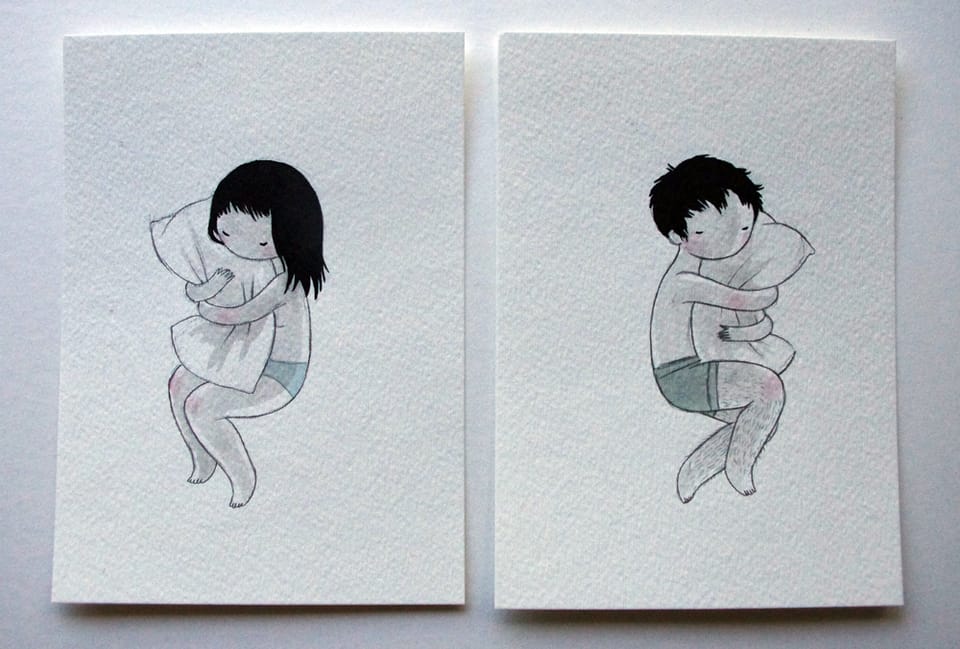
A Lonely Duel
They demanded confidence, and so there was confidence. They demanded happiness, and so there was happiness. They demanded ambition and kindness and wit, both of which were evident in every word he spoke, in every act he performed, in every nod to passersby and every smile to strangers who drifted through his days. They demanded laughter, and so he laughed. He told jokes, made clever observations, whispered wildly satirical commentary in the ears of intelligent ladies, and they laughed. Day after day, night after night, strangers and friends alike, they demanded the world, and so he gave them the world.
When they went home at night, when they returned to families and friends, lovers and loneliness, he had nothing left to give, and nowhere from which to take. An empty couch in an empty apartment, an empty bottle in one hand, a half-empty bottle in the other, he whispered to the darkness and sought answers in the howl of the nighttime wind, in the haunting calls of nocturnal creatures, in the sultry words of past romances, and in the unsatisfying passions of imagination. He, too, demanded the world, but the world wasn’t interested.
“Where will I find what I want?” he asked. A friend had met him for coffee in the quiet hours after midnight. She would be more than a friend if he had asked. She had told him as much. But as too often happens to those in love, those willing to give the world, the world he desired drifted in a galaxy far from hers.
“You can’t find what you want,” she told him, “until you know what it is you desire.”
“I know what I desire.”
“So you think,” she said, “but you dream of fictions and fantasies. You desire the impossible.”
“So do they,” he argued. “They demand a million luxuries, a thousand facets of personality, most of which are contradictory. Yet they want you to be yourself, as though anyone who fulfills their requirements could have any sense of self.”
“You try too hard,” she said.
“I don’t try at all.”
“You can’t be everything to everyone.”
“Or anything to anyone, it would seem.”
She stared into the darkness beyond the café window. She wanted to tell him so many things, but she knew he wouldn’t listen. Her own marriage had ended years earlier in a whirlwind of accusations and lies, affairs and abandonment. She had suffered the same doubts as he, the same guilt, the same sense of failure and uncertainty. Life had taught her what it hadn’t yet taught him: the only foe greater than loneliness is the fear of abandoning its comforts.
How many people did she know who were afflicted by the same illness? And how many of them failed to see the simplest truth? One cannot expect to escape loneliness until one sacrifices the entitlements of being alone. She loved the man sitting beside her, but she knew he would continue his patterns until something opened his eyes. He would have wine with ladies he didn’t care to understand, beer with friends he too often ignored, whiskey with strangers in rundown taverns, and water with himself in a bathroom mirror, late at night before bed, pale and exhausted, with eyes that refused to acknowledge his own worth.
She wanted to be the one to open his eyes. Despite his refusals, she still maintained hope, and every moment they spent together was a chance to break down walls. But she couldn’t tell him her thoughts. How could she be that honest? How could she be that sincere? What if she frightened him away? What if she pushed him too hard? What if all her efforts to win him over were lost in a moment of passionate expression? “That’s simply not true,” she said. “You could be everything to someone.”
And that night she lay in bed, alone, thinking of him. And he lay in bed, alone, thinking of what she had said. And so, in some ways they were thinking about each other. But neither would be satisfied with that knowledge. And neither would fall asleep happy.
Instead, they lay awake for hours, each facing a different type of loneliness, unaware, of course, that there is no difference at all.
-------------------------------
This snippet was originally posted to my blog some time around 2012, I think, but it doesn’t exist here so I thought I’d repost it.
I found the artwork attached to this post via a Google search. It’s called “Long Distance Relationship” and was created by Stasia Burrington, who currently lives in Seattle, WA. You can read more about her and her art at StasiaBurrington.com.